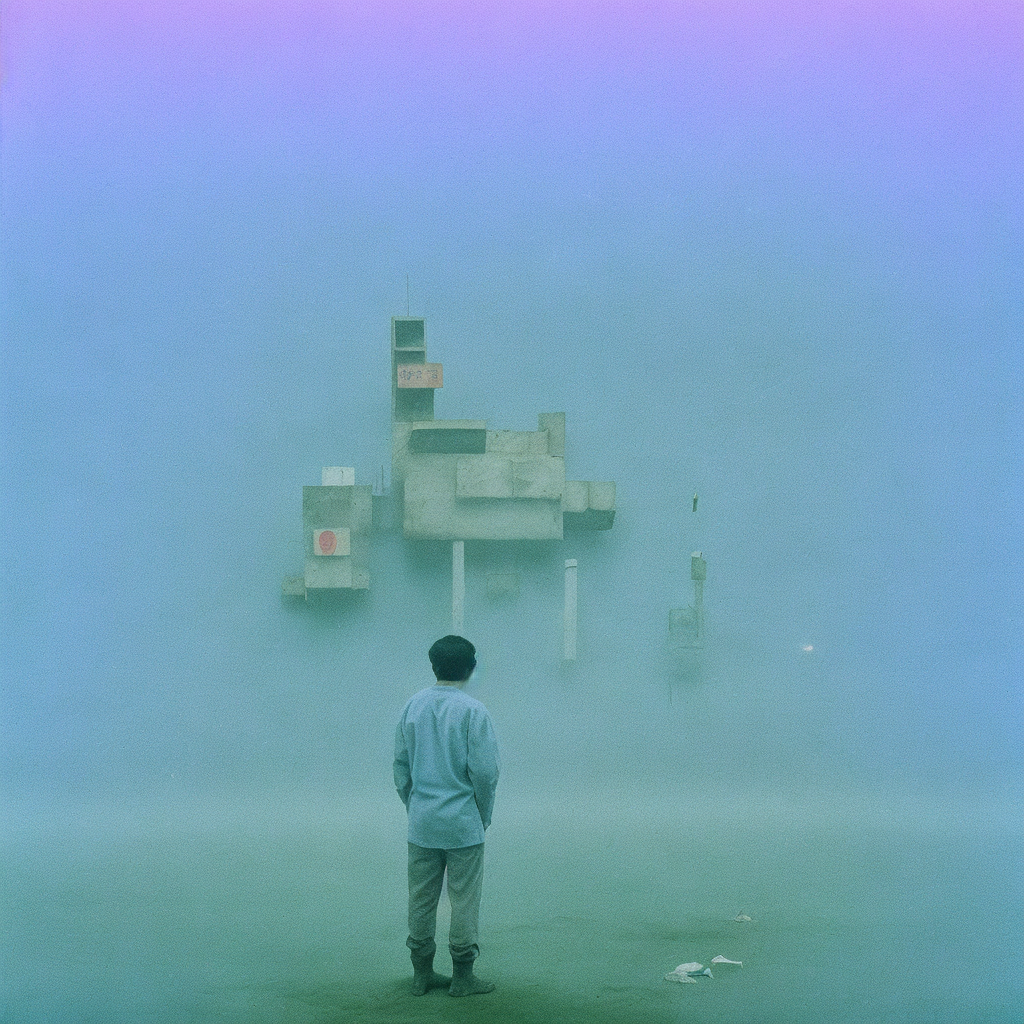Au milieu / In the middle

Dans les décennies passées, nous avions pu avoir l’illusion de vivre en parallèle de la société, au milieu d’elle, mais pouvant y créer d’autres manières de vivre, d’autres relations, d’autres égalités, d’autres espaces. Sans faire sécession, nous parvenions à y être sans y être, parce que sans doute que nous avions cru avoir gagné. Le racisme, la xénophobie, le sexisme, l’intolérance étaient résiduels. C’était une question de temps.
Le paradigme de cette vie parallèle fut, pour moi, le mouvement alternatif des années 80 : adolescents, nous avons appris à être différents, à avoir notre musique, notre manière de nous habiller, notre culture, notre économie, etc.
Le capitalisme, c.-à-d.. la concentration et la réification du capital aux mains d’une minorité, s’est infiltré partout, transformant nos espaces autonomes en marchandise, renforçant la distribution par le Web, y trouvant un canal unifié et totalisé, concentrant le monde des flux en un point minuscule.
Les réseaux sociaux ont produit l’étrange victoire de l’opinion démocratique, chacun pouvant s’y exprimer et la liberté devenant celle de dire tout et n’importe quoi, de relativiser chaque opinion jusqu’au point où la science est devenue une opinion parmi d’autres. Un immense retournement est intervenu comme si toute la déconstruction dont nous avions été porteurs avait été métabolisée par la domination et que la critique des sciences, de la rationalité, de l’universalisme, de l’Arraisonnement devenait une arme aux mains des néofascistes.
Depuis 2005 et l’insurrection des banlieues, depuis l’absence de réponse aux exclusions systémiques (mais qui a bien sûr commencé depuis bien longtemps), nous ne parvenons plus à vivre parallèlement à la société et aux dominations qu’elle structure. Les exclusions ne sont plus systémiques, mais systématiques, elles sont organisées politiquement par le refus de la culture d’autrui, de l’altérité. Cette altérité qui pourrait briser le fantasme fasciste d’une identité close, d’une identité sûre d’elle-même et s’autofondant.
Depuis, nous ne parvenons plus à vivre. Nous ne croyions pas pour autant à la sécession, aux groupes minoritaires, nous ne voulons pas avoir les mains propres, c.-à-d.. pas de mains. Nous croyons encore à la boue de la société, à notre impureté. Mais voilà, nous sommes aliénés par ce bruit de fond de l’exclusion qui organisant l’invisibilisation des signes culturels des dominé. e. s fait gronder la logique génocidaire, celle qui passe de l’invisibilisation énoncée en meurtre de masse. Que celle-ci soit faite au nom de grands principes et d’un peuple qui fut lui-même occulté par le meurtre industriellement organisé, ne change à l’affaire.
Comment continuer à être aliéné par la haine qui se déverse sur Twitter ? Comment laisser ces paroles génocidaires sans réponse ? Peut-on répondre à ce type de parole sans langage, c.-à-d. sans altérité ?
In past decades, we may have had the illusion of living parallel to society, in its midst, but able to create other ways of living, other relationships, other equalities, other spaces. Without seceding, we managed to be there without being there, because we undoubtedly thought we’d won. Racism, xenophobia, sexism and intolerance were residual. It was a matter of time.
For me, the paradigm of this parallel life was the alternative movement of the ’80s: as teenagers, we learned to be different, to have our own music, our own way of dressing, our own culture, our own economy and so on.
Capitalism, i.e. the concentration and commodification of capital in the hands of a minority, has infiltrated everywhere, transforming our autonomous spaces into commodities, reinforcing distribution through the Web, finding in it a unified and totalized channel, concentrating the world of flows in a tiny point.
Social networks have produced the strange victory of democratic opinion, with everyone able to express themselves, and freedom becoming the freedom to say anything and everything, to relativize every opinion to the point where science has become just another opinion. An immense reversal has taken place, as if all the deconstruction we had been the bearers of had been metabolized by domination, and the critique of science, rationality, universalism and Arraisonnement has become a weapon in the hands of neo-fascists.
Since 2005 and the insurrection in the suburbs, since the lack of response to systemic exclusion (which of course began a long time ago), we have been unable to live in parallel with society and the dominations it structures. Exclusion is no longer systemic, but systematic; it is organized politically by the refusal of the culture of others, of otherness. This otherness could shatter the fascist fantasy of a closed identity, of a self-confident, self-founding identity.
Since then, we’ve been unable to live. But we don’t believe in secession, in minority groups, we just don’t want to have clean hands, i.e. no hands. We still believe in the muck of society, in our impurity. But here we are, alienated by the background noise of exclusion, which, by organizing the invisibilization of the cultural signs of the dominated, makes the genocidal logic growl, the logic that transforms enunciated invisibilization into mass murder. The fact that this is done in the name of high principles, and of a people who were themselves obscured by industrially organized murder, doesn’t change the matter.
How can we continue to be alienated by the hatred poured out on Twitter? How can we let these genocidal words go unanswered? Can we respond to this kind of speech without language, i.e., without otherness?
